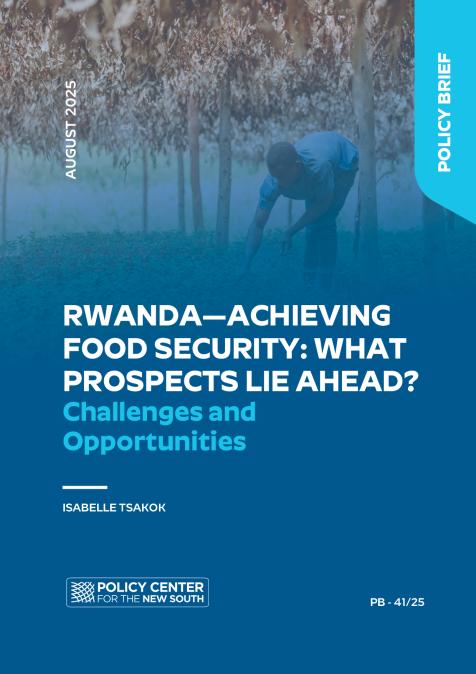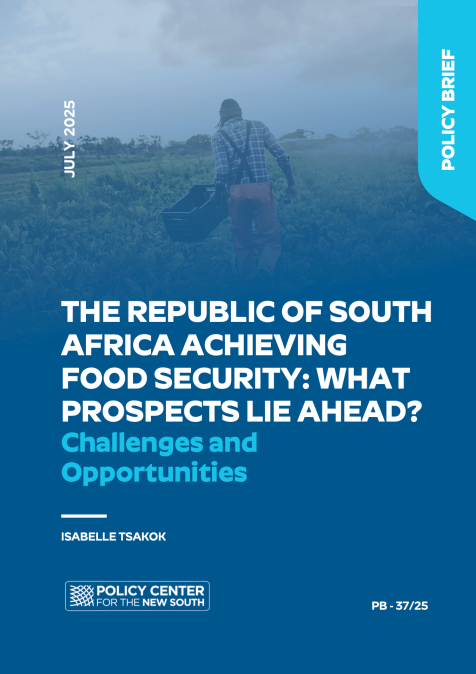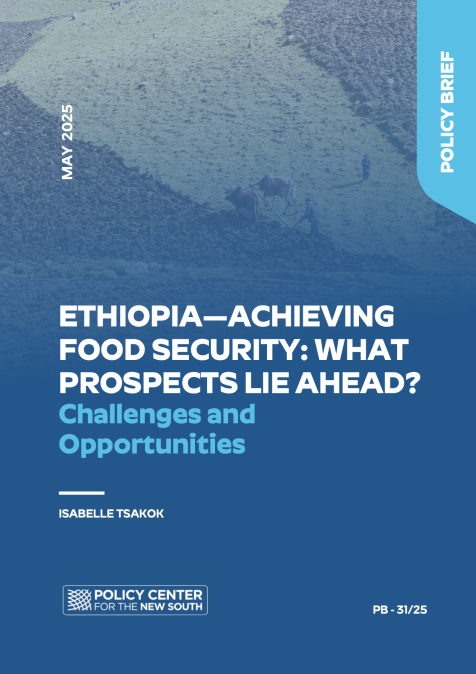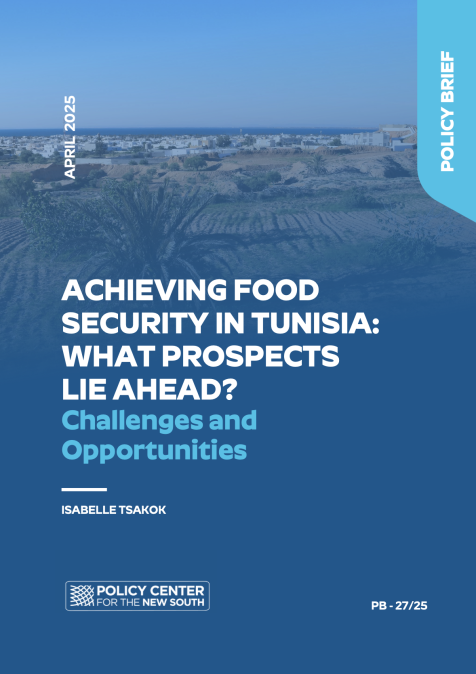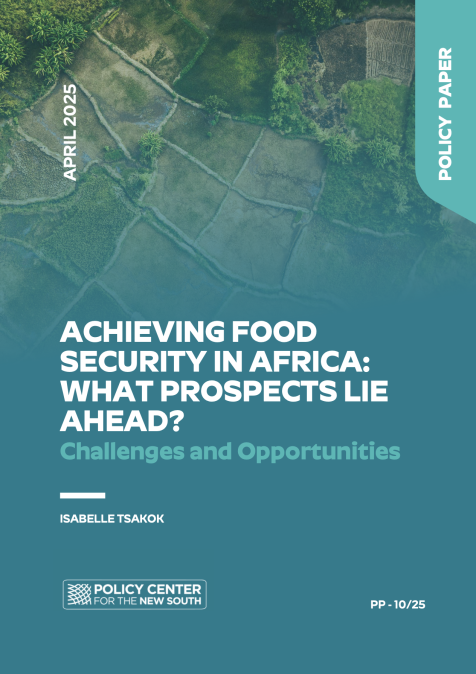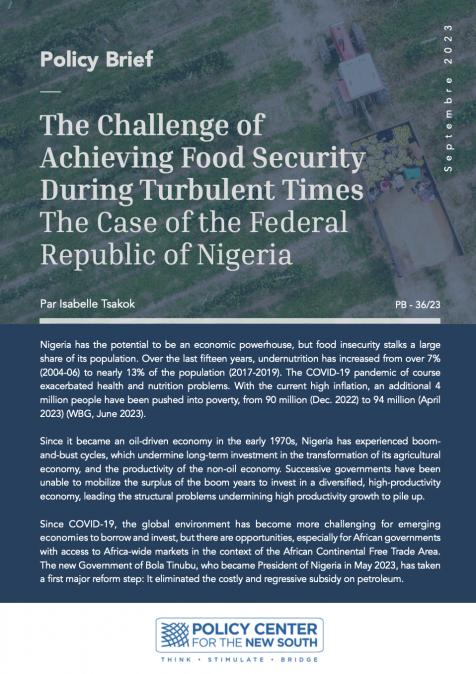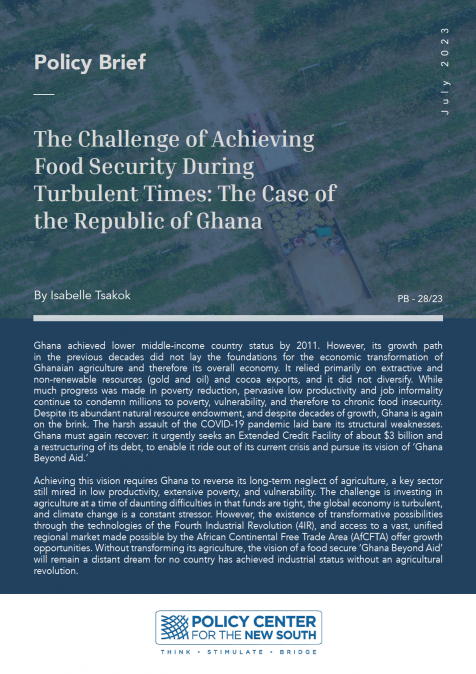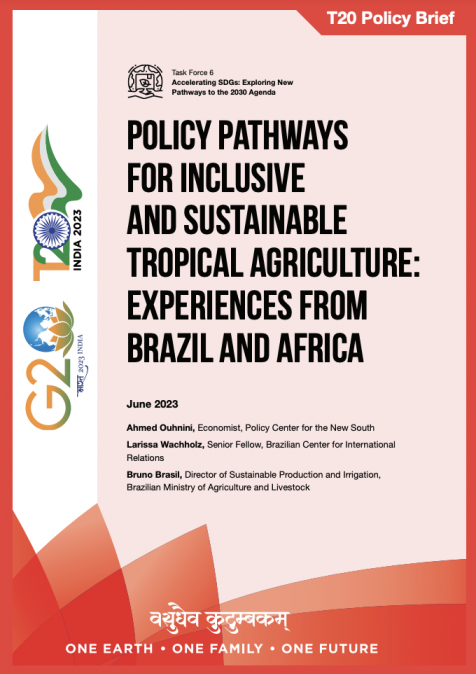Africafé est une émission du Policy Center for the New South qui décrypte l’actualité des organisations africaines et de l’Afrique. A travers de courtes interviews, l’émission tente de proposer d’aborder de manière pédagogique les enjeux des organisations africaines et l’actualité du continent.
Dans cet épisode, Henri Louis Vedie discute des enjeux de la sécurité alimentaire en Afrique et de la place des engrais et de l’agriculture africaine dans l’atteinte de l’autosuffisance alimentaire sur le continent.
Speakers

Youssef Tobi
International Relations Specialist
Tobi Youssef has joined the Policy Center for the New South in 2017. He is currently working on Politics and Governance in the Maghreb Region; his areas of expertise are geopolitics, political risk and nation building. Youssef Tobi obtained a Master Degree at Sciences Po Lyon where he wrote two thesis on “ the role of Moroccan Bank in Africa, a non-state actor in service of the Diplomacy” and the“ Chasm between the mediatic and associative representation of refugees : a case study”.
Prior to working at the Think tank, Tobi Youssef participated in a Social Entrepreneurship Project in Beirut, Lebanon and conducted an internship in a NGO based in Marseille where he assisted refugees and helped raise funds.
...

Henri-Louis Védie
Senior Fellow
Henri Louis Vedie is a Senior Fellow at Policy Center for the New South. Holding a doctorate in economic sciences from Dauphine University Paris, and a graduate in Law from Université Paris I, Henri-Louis Vedie is also Professor Emeritus at HEC Paris, where he teaches in the Paris campus as well as Moscow, Varsovia, Belgrade, Abu Dhabi, Rabat, and more.
Author of sixteen books, of which the last few concerned Morocco and sovereign funds, hundreds of articles (of which some where translated in English, French, Arabic, Polish and Russian), Henri-Louis Vedie was also a consultant for the European Council and a member of the Economic, Social and Environmental board in Paris.
...

